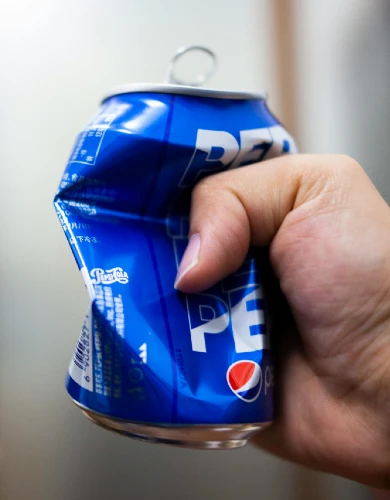Commercial Waste Regulations
This guide explains the obligations businesses in the UK have for managing and disposing of their waste.
Commercial waste refers to waste generated by any trade or business. For a precise definition of how this differs from domestic waste, refer to our guide on what is classified as commercial waste.
This guide covers:
- Simpler Recycling rules – Upcoming regulations requiring separate commercial recycling collections for businesses in England.
- Commercial recycling rules – A quick reference guide to the recycling rules for each type of business waste.
- Duty of care – An explanation of the different elements of business waste management obligations under UK law.
Simpler Recycling rules
Applies to: Businesses and other organisations in England with 10 or more full-time equivalent employees.
Applies from: 31 March 2025.
Non-domestic premises must not include core recyclable waste streams in general business waste. Instead, they are required to use a commercial recycling service.
Core recyclable waste streams: Glass, metal, plastic, paper and card, and food waste.
The rules allow private waste firms flexibility in managing waste collections, provided that core recyclable waste streams are kept separate from general business waste.
Below are the most common bin combinations offered by commercial waste providers to comply with the Simpler Recycling rules:
| Commercial waste provider | Bin #1 | Bin #2 | Bin #3 | Bin #4 |
|---|---|---|---|---|
| First Mile | General Business Waste: Non-recyclables | Commercial Food Waste | Dry Mixed Recycling: Glass, aluminium, plastics, paper, and cardboard | |
| Biffa & Veolia | General Business Waste: Non-recyclables | Commercial Food Waste | Dry Mixed Recycling: Aluminium, plastics, paper, and cardboard | Commercial Glass Recycling |
| Local Councils | General Business Waste: Non-recyclables | Commercial Food Waste | Dry Mixed Recycling: Aluminium, plastics, paper, and glass | Commercial Cardboard Recycling (including paper) |
Smaller businesses have until 31 March 2027 to comply with the Simpler Recycling rules.
💡 For the equivalent rules in other home nations, visit our commercial waste Scotland or commercial waste Wales page.
Commercial recycling rules
We’ve summarised the recycling obligations for the different types of waste businesses generate. Where the rules are more complex, we’ve included links to our detailed guides.
- Food waste: Businesses generating over 5kg of food waste per week must not dispose of it in general business waste. Instead, they should arrange a separate commercial food waste collection. For full rules and exemptions, visit our guide to commercial food waste recycling obligations.
- Glass waste: Commercial glass recycling is a core recycling type and must not be disposed of in general business waste. It should be recycled in a dry mixed recycling bin or through a dedicated collection.
- Cardboard waste: Commercial cardboard recycling is a core recycling type and must not be disposed of in general business waste. It should be recycled either in a dry mixed recycling bin or through a dedicated collection.
- Metal waste: Aluminium or tin cans are a core recycling type and must not be disposed of in general business waste. They should be recycled in a dry mixed recycling service.
- Plastic waste: Some types of plastic are widely recycled and should be included in a commercial dry mixed recycling service. Others are non-recyclable and should be disposed of in general business waste. Visit our guide on commercial plastic recycling for more details.
- Sanitary waste: If your business generates more than 7kg of sanitary waste per week, a separate sanitary waste collection must be arranged. For further details, visit our page on sanitary waste obligations for businesses.
- Hazardous waste: Hazardous waste must not be mixed with non-hazardous waste. See our comprehensive explanation of obligations for businesses on our hazardous waste page.
- Clinical waste: Businesses must adhere to detailed rules regarding the segregation and labelling of clinical waste, which includes an audit requirement. Visit our clinical waste collection page for more information.
Duty of Care
In the UK, all businesses and organisations have a legal duty of care over the waste they generate.
This legal responsibility was introduced in the groundbreaking Environmental Protection Act (EPA) 1990 and was recently amended by the Environment Act (EA) 2021 to provide more clarity in definitions and expanded responsibilities.
Below, we summarise the key parts of each piece of waste legislation:
Environmental Protection Act 1990
Duty of Care: “Any commercial activity”, whether run from home or its premises, is legally responsible for its waste and will pay fines or be convicted for jail if found non-compliant.
Commercial & Household Waste: Waste generated by non-domestic activities cannot be mingled with the domestic waste stream (i.e. business and household waste must be kept separate).
Licenses: Your business is liable for its waste from when it is produced until it is recovered or disposed of. You must ensure that your waste disposal and collection provider has the relevant operating licenses.
💡 Note: Our commercial waste quotes are from vetted, fully licensed business waste collection providers, so there’s no need to worry!
Paperwork: All businesses must sign and keep a copy of Waste Transfer Notes and Consignment Notes to declare compliance.
Fines: In England and Wales, unlimited fines are available for non-compliance, while in Scotland and Northern Ireland, the statuary maximum is £5,000.
Sources: UK Environmental Protection Act (1990) pdf; Right Place, Right Waste
Environment Act 2021
Segregation of Recyclables and Food Waste: Recyclable and food waste must remain as segregated waste streams.
Waste hierarchy: Businesses must follow the waste hierarchy as a guiding principle for waste management. Visit our full guide to the waste hierarchy for more information.
Recycling Standardisation: Recycling practices, materials and labelling on packaging must be standardised.
Extended Producer Responsibility (EPR): Product manufacturers and producers will be responsible for the end-of-life management of their products (not yet fully implemented).
Electronic Waste Tracking: Introduces a universal electronic waste tracking system to enhance enforcement against electronic waste crime (not yet fully implemented).
Charging Schemes: Empowers regulators by allowing charging schemes to recover the costs of enforcing Duty of Care breaches in non-compliant businesses (i.e. higher fines for businesses).
Sources: UK Environment Act 2021; Sharpe Pritchard

